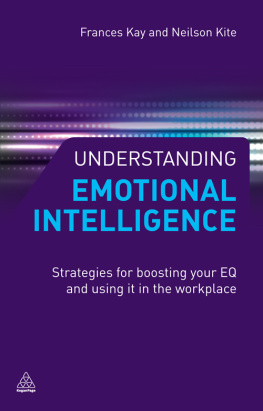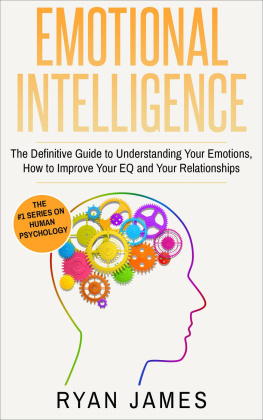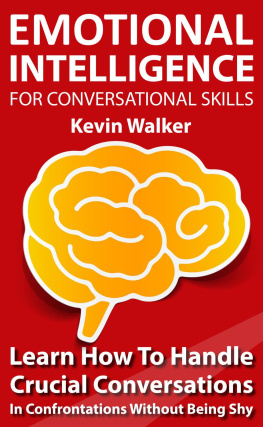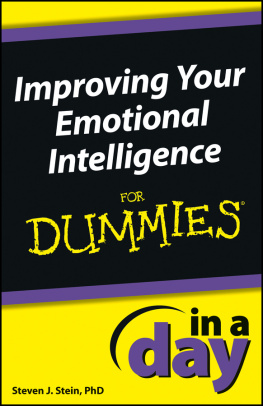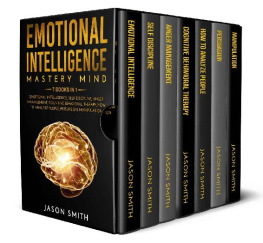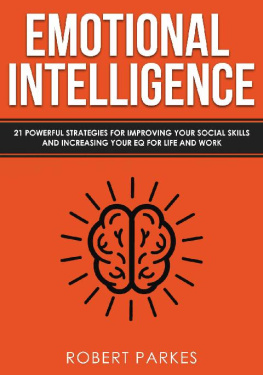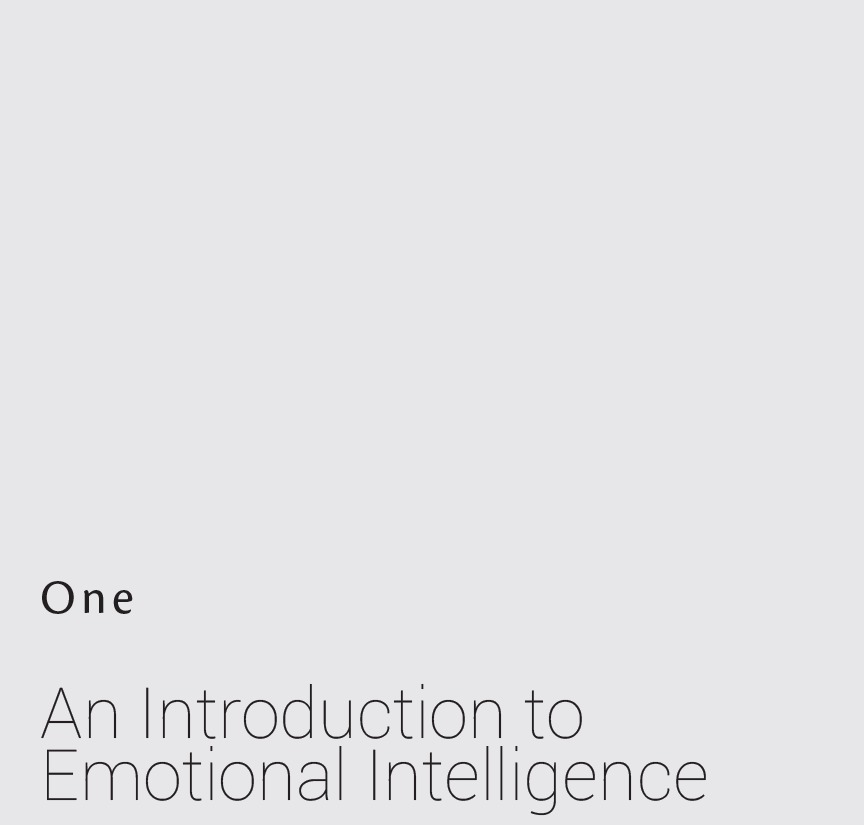Emotional Intelligence for a Compassionate World
Emotional Intelligence for a Compassionate World
Workbook for Enhancing Emotional Intelligence Skills
Barbara A. Kerr PhD
Copyright 2017 Barbara A. Kerr PhD
All rights reserved.
ISBN-13: 9781544607665
ISBN-10: 1544607660
Library of Congress Control Number: 2017905126
CreateSpace Independent Publishing Platform
North Charleston, South Carolina
E motional Intelligence for a Compassionate World began as an online course offered as part of the curriculum of the Compassion Education Institute, in partnership with the Charter for Compassion International. It has been my pleasure and privilege to engage with hundreds of students with whom I interacted both in person and online. Students asked to have the information and links in a book format so they could review what they had learned or look back at suggestions for improving their Emotional Intelligence skills. I am grateful to those many students who participated in the course over the yearsin the live version as well as the online edition. Their comments, insights, suggestions, and questions have enriched my understanding, broadened my horizons, and often made their way into this book.
I owe a debt of gratitude to Mary ONeill, who incorporated many of the exercises in her live workshops, and Patrick McLaughlin who reviewed an early version of the course. I am grateful, as well, to the team at the Compassion Education Institute: Olivia McIvor, Debra Scholten, and Kelley Haynes-Mendez for their intelligence and organizational skillsbut mostly for their kindness always. I would especially like to acknowledge the help and unfailing support of Don Rooks and Lisa Davis, who have graciously edited the materials in the course and now the book, and who have provided encouragement at every stepthe wind beneath my wings.

T he information, the activities, and the assignments that make up Emotional Intelligence for a Compassionate World will lead you on a journey to discover answers to your questions, to satisfy your curiosity, and to assist you in building your skills for greater personal satisfaction and success in your relationships at home, in the workplace, and in the wider world.
The opening chapter provides an overview of Emotional Intelligence and introduces the Success Model. The following five chapters go into more detail about each of the five dimensions of that model: Awareness of the Self, Actions of the Self, Awareness of Others, Interaction with Others, and Resilience. Each chapter also includes activities for you to practice and improve skills, and each concludes with a reflection as well as suggestions for further enhancement.
The final chapter includes two planning guides. One is an Action Plan for Emotional Intelligencean opportunity for you to commit to actions for improvement. In addition, you will find a Compassionate Action Plan, which will guide you in taking steps toward being more compassionate. Enjoy the journey!
In this workbook, youll have access to plenty of information, but you will be working toward several specific learning outcomes.
You will connect EI skills to the development of self-compassion, compassion for others, and global compassion.
You will become more aware of the role that emotions play in everyday experience, in both the personal and professional aspects of your life.
You will be better able to identify your own emotions and plan how to manage them.
You will learn techniques to become more adept at reading emotional cues in others to build productive teams and support networks.
You will be more able to positively influence others by changing the way you interact with them.
You will become more aware of the importance of building and maintaining your resilience despite the stresses that are part of any workplace and an inevitable aspect of all our lives.
You will also have the opportunity to create an Action Plan for improving your own EI skills and to complete a Plan for Compassionate Action.
.
.
.
.
WHY EMOTIONAL INTELLIGENCE?
E motions are a constant in the lives of us humans. Everyday. Everywhere. No matter who we are, where we live, or what we do, Emotions color our moments, our days, our years, and our entire lives.
While there are people who suffer from brain diseases or have had an injury to the brain, most of us feel the ups and downs of our human emotions. We do the best we can not only to deal with those emotions but also to navigate through the minefields of other peoples emotions every day.
By the time we have completed the years of childhood and adolescence, we are expected to have mastered this aspect of our lives, to demonstrate by our behaviors that we are the masters of our emotions. But is that true?
Why then do we so often pretend that we are not feeling an emotion?
Why do we attempt to hide our emotions from others?
Why do we feel that we must park our emotions at the door?
Why is it that we often have difficulty figuring out what it is we are feeling?
Why are we sometimes frightened or surprised by feeling an emotion?
Why do we so often have difficulty managing those strong emotionsjealousy, loneliness, anger for example?
How do we remain calm and caring or supportive while others are experiencing these strong emotions?
How is it possible for us to increase the emotions we would like to have more of, such as compassion or kindness?
And why is it that some people seem to be able to handle their emotions better than others?
These questions are all part of the topic of Emotional Intelligence.
WHAT DOES IT MEAN TO BE EMOTIONALLY INTELLIGENT?
In the growing body of research about Emotional Intelligence, which now includes studies in the fields of neuroscience and positive psychology, an increasing number of definitions, assessments, and models have been offered. Lets hit a few of the highlights.
Reuven Bar-On, an American-born Israeli clinical psychologist, developed one of the first and now most well-validated assessment instruments, the EQ-i. Bar-On focused his research by asking a couple of questions:
Why do some people succeed in possessing better emotional well-being than others?
Why are some individuals more able to succeed in life than others?
Emotional intelligence is concerned with effectively understanding oneself and others, relating well to people, and adapting to and coping with the immediate surroundings to be more successful in dealing with environmental demands.


